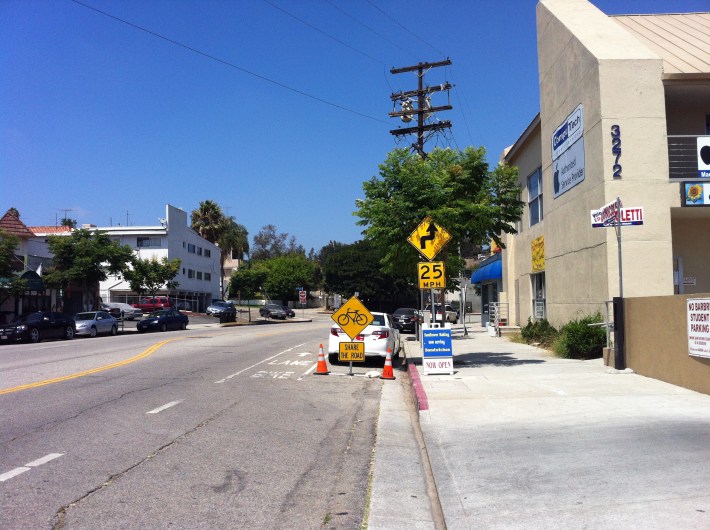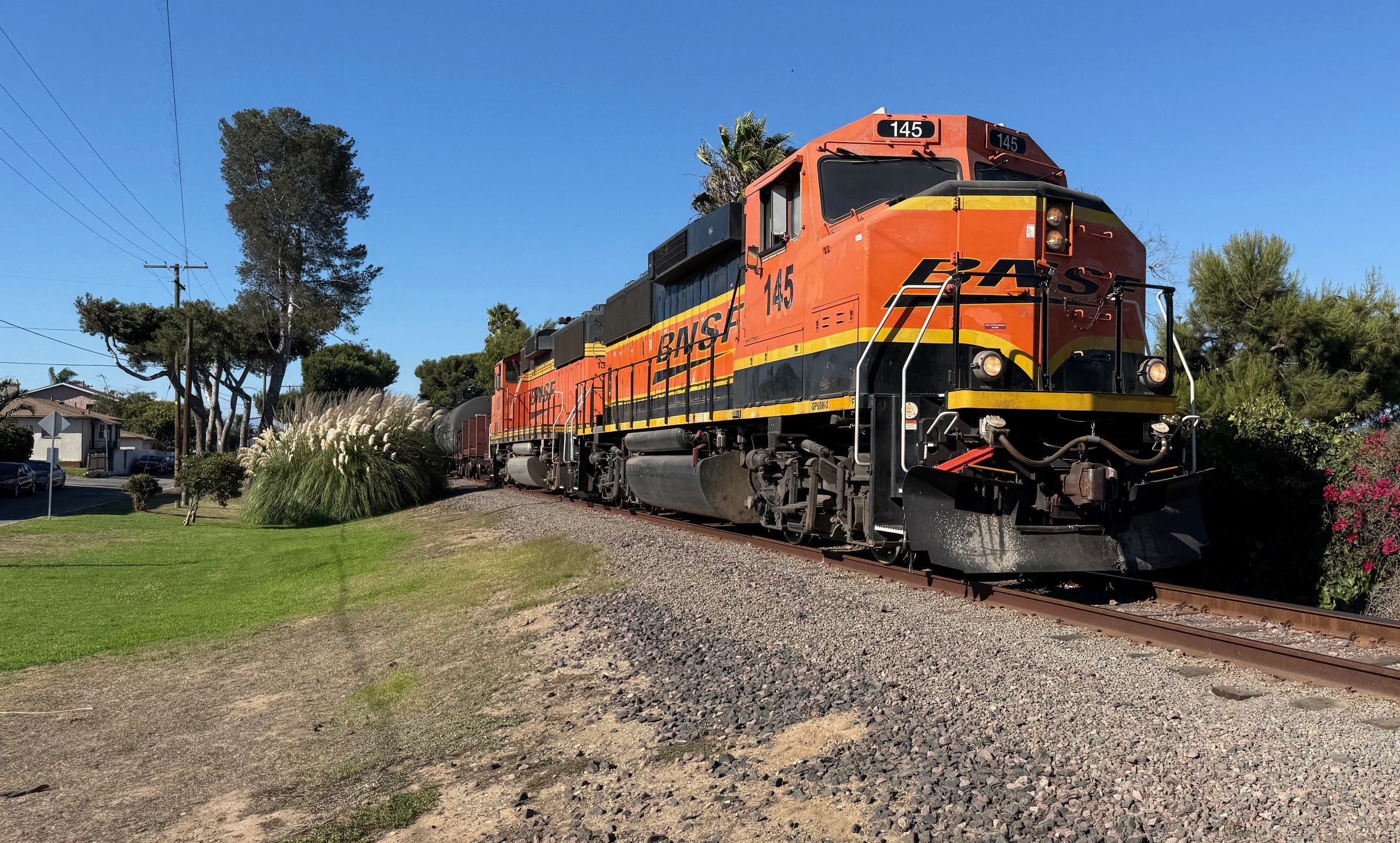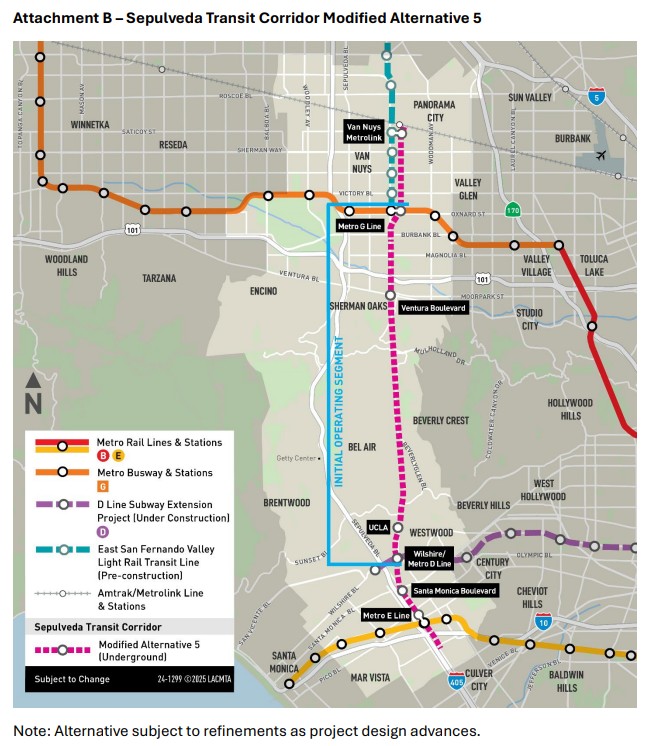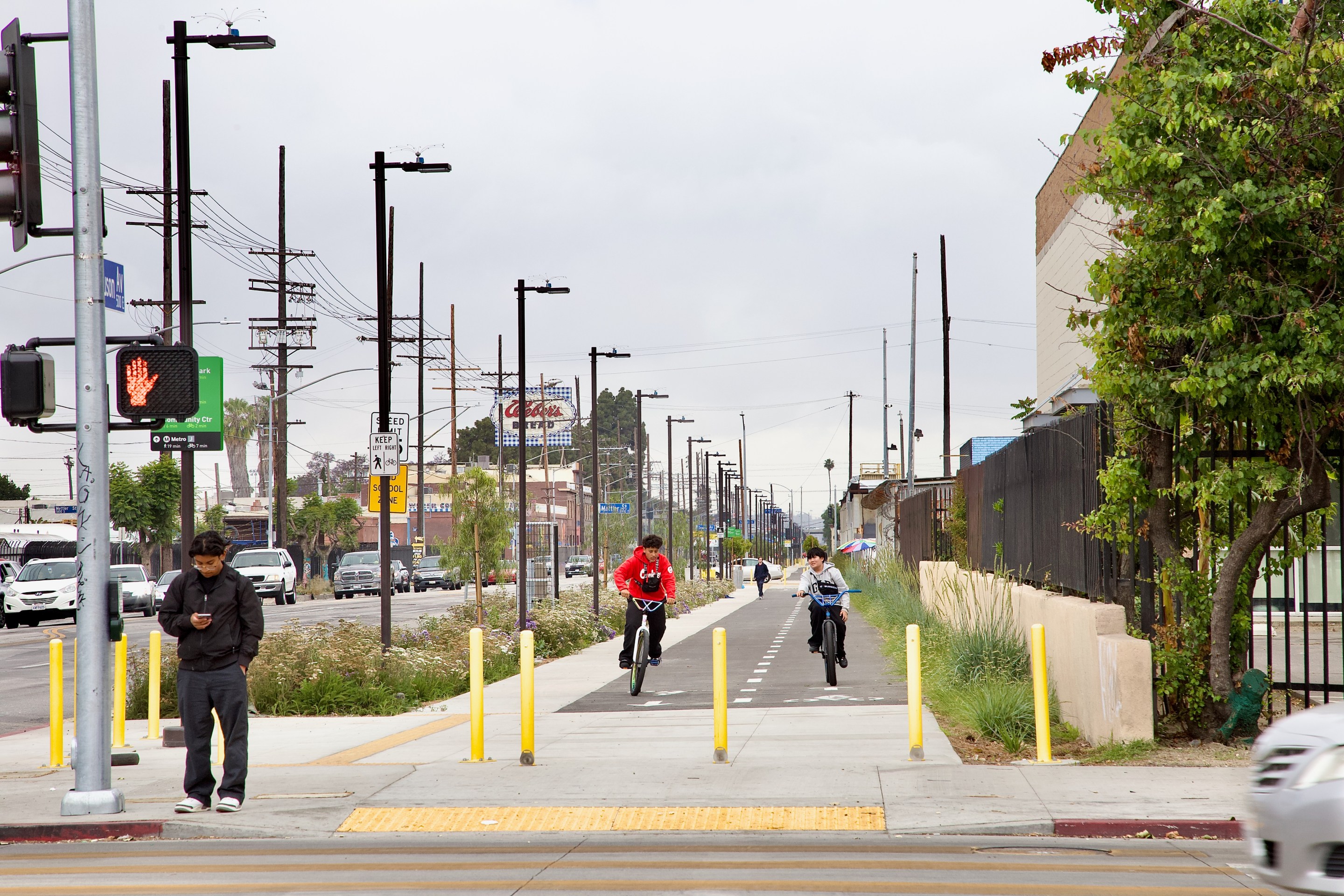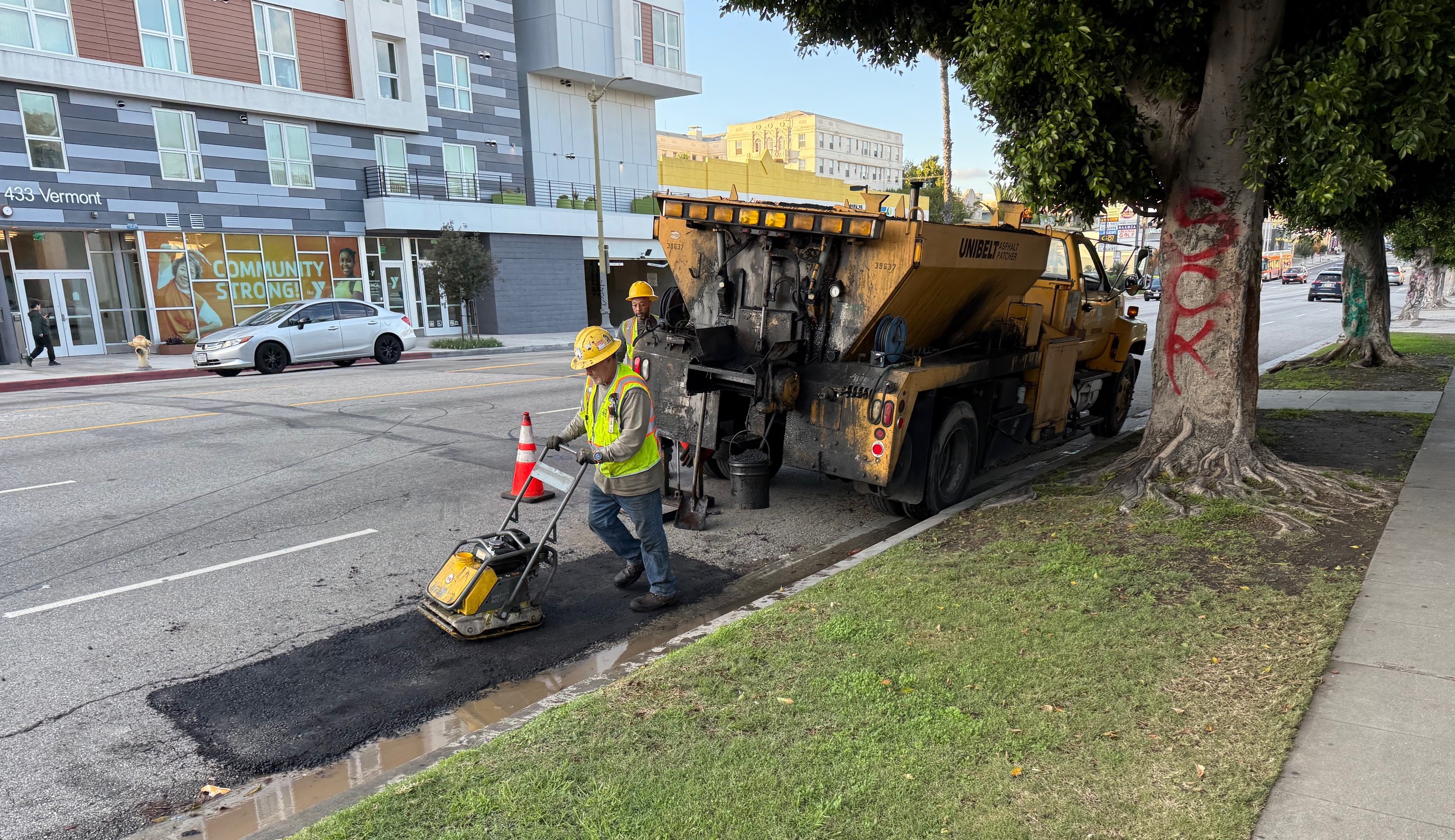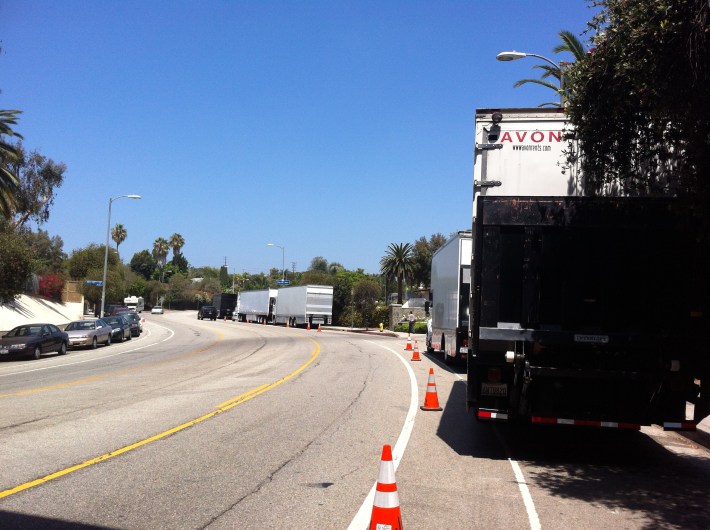
(We've gotten a lot of complaints about bike lanes being blocked by cars/film crews/police cars/trash bins/etc. We're proud to introduce a weekly series explaining what a cyclist should do when he sees a blocked bike lane. Today we're discussing film crews. Next week, we'll talk LAPD cars.)
Over the past year, it seems that film industry and cyclists have been in a sort of cold war. Cyclists complain that film crews illegally block bike lanes. Meanwhile, the film industry hasn't been shy denouncing L.A.'s bike infrastructure. The Spring Street Green Buffered Bike Lane has been a particular lightning rod.
Earlier this week, local writer and cyclist Erik Knutzen noticed a bike lane blocked in Silverlake by a film crew. After Eastsider picked up the story, the Los Angeles County Bicycle Coalition was on the scene, Film L.A., a private non-profit that handles permitting for the industry, stepped in and made sure that everything was done according to the rules a mere day and a half after the complaint was first lodged. O.k., actually Film L.A. didn't really get things up to the legal obligation, but they got closer.
First, the LADOT has published a hand book on how to close a bike lane. The closure in Silver Lake, and the one documented above by Jonathan Weiss both fail the most basic test of whether a closure is done according to LADOT regulations. Every lane closure, be it bike lane, mixed use travel lane, bus lane, turn lane, or any other lane you can think of has to be announced ahead of time. Specifically, advance notice is required in both time and space. Signs should be posted in advance of the closure so cyclists have the option of plotting a different route ahead of time. Signage should also be placed on the street well ahead of the closure for the same reason.
A couple of cones placed to keep cyclists out of the door zone are nice as far as they go, and the signage at the bottom of the Eastsider article is also a step in the right direction. But advance notice is a bare minimum to keep all road users safe. In both cases, it's not just cyclists that are being put at risk, but also car drivers who might make mistakes when cyclists are forced into a mixed use lane.
So what should someone do when they see a film crew blocking the bike lane?
First off, every person using Los Angeles’ streets has a right to see permits when a street is being blocked regardless of who is doing the blocking. Any passerby can ask the Production Manager or the Location Manager or the Production Designer on site for the Film Permit. If you can't identify who is in charge, just ask one of the security guards. They HAVE to show you the permit. If they don't, call the police.
If the permit doesn't specify that they will be filming in the street or that they can block the lane, or doesn't specify intermittent traffic control, then the production is shooting in excess of its permit. Or, in short, it's breaking the law. If a crew doesn’t have a permit or has a permit that doesn’t cover the activity they are undertaking, call the police. Immediately. Then take some pictures and send them to us.
If they do have a permit for the shoot location and it does allow for temporary closure of the lane, make certain that advance notification signage is in place. If not, tell them to put something up or you'll call the police. Call the police.
There are some that would argue that the best course is to call Film L.A. first. There's two problems with that. First, Film L.A. is a private non-profit that depends on the filming industry for survivial. The second is their number isn't quite as memorable as 311. If you happen upon a blocked bike lane and want to talk to Film L.A. instead of the police, here is their contact information.
Next week: The LAPD tells us what to do when a cop car is blocking a bike lane.
